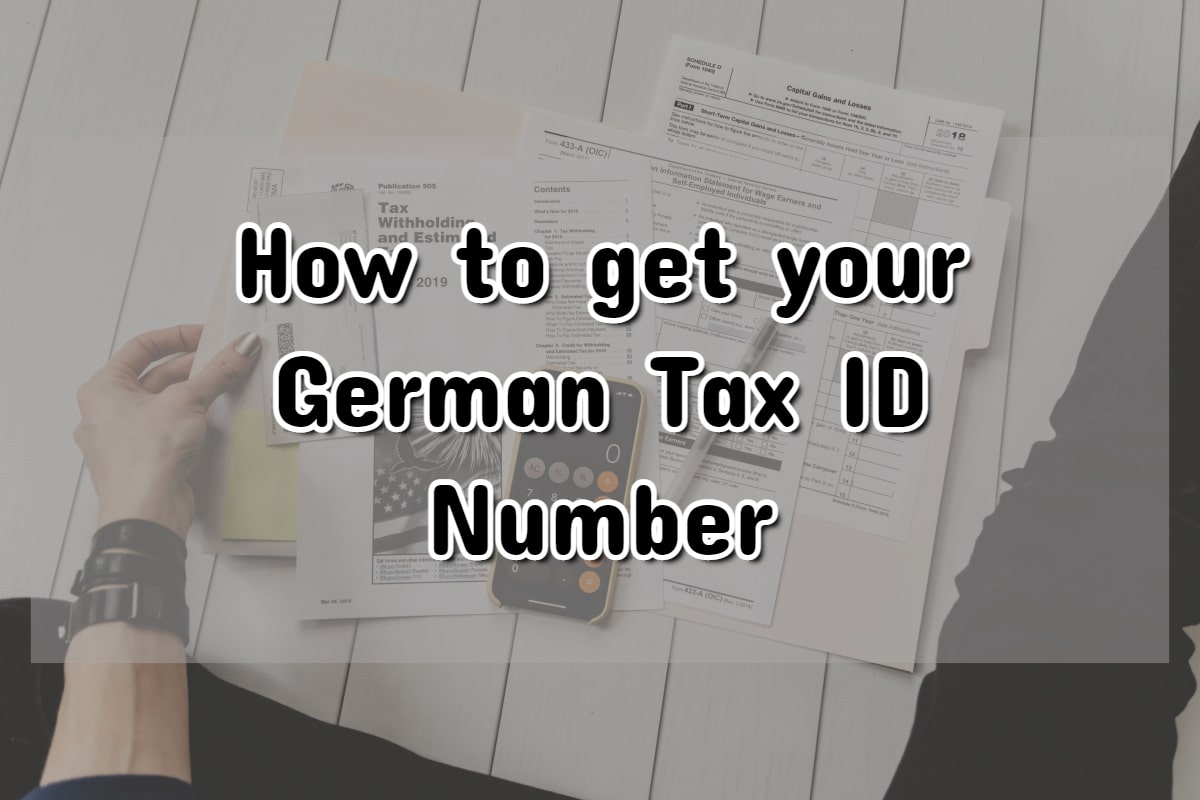Understanding German tax can be daunting.
From submitting a tax return, to understanding which tax class you fit into, right the way through to figuring out the tax deductions on your German payslip, there’s a lot to get your head around.
An important part of this financial admin will be obtaining your German Tax ID.
There are three tax-related identification numbers. One of them will definitely apply to you, the other two possibly not.
Let’s start with your tax ID (Steueridentifikationsnummer).
Everyone registered in Germany is issued with one of these. Whether you’re self-employed or an employee. Everybody is issued with one.
If you’re self-employed you’ll also have a tax number (Steuernummer).
You might also have a VAT number (Umsatzsteuer-ID), depending on how much your business turns over in a given year…we’ll cover this later in the article.
Let’s break each of these down and explain what they mean, and where you can find yours.
Understanding your German Tax ID Number
The German Tax ID Number
This number has a frankly daunting amount of names. You may hear it referred to as the Steueridentifikationsnummer, Persönliche Identificationsnummer, Steuerliche Identifikationsnummer, Identifikationsnummer, Steuer-IdNr or Steuer-ID.
For the sake of brevity, we’ll refer to it simply as the Tax ID from here onwards.
The Tax ID is a number assigned to any individual living and working in Germany by the Federal Central Tax Office. This is how you’re recognised at a federal level, for taxation purposes. It’s an eleven digit code, presented in the format “xx-xxx-xxx-xxx”.
Consider the German Tax ID as similar to your Taxpayer Identification Number (TIN) in the UK, or your Social Security Number in the US.
Your Tax ID never changes, staying the same for life. Be aware! Your Tax ID is only issued once, so make a note of it and keep this safe.
If you’ve forgotten or lost your German tax ID, you can fill in this form online, or take a trip to the local tax office with your relevant identification documents in hand.
This should not be confused with the Tax Number (Steuernummer). This is something separate for businesses and self-employed individuals, which we’ve covered below.
Why do I need a German Tax ID?
Without a German Tax ID number, you won’t be able to pay taxes, apply for healthcare, or receive any kind of government benefits.
While you technically don’t need a Tax ID to start working, it will make things rather awkward if you begin a job without one.
Your employer uses your Tax ID to calculate your rate income tax, along with other deductibles from your payslip. Without one, you may default to the highest possible tax rate!
It is usually possible to have such overpayments refunded, but it’s best to avoid this extra step of administrative hassle if you can.
How to apply for your German Tax ID
As an expat in Germany, you don’t need to make a specific application for your German Tax ID number.
Instead, a Tax ID is automatically assigned to you once you complete your registration (Anmeldung). This is something you’ll need to do within the first two weeks of moving into your official address in Germany.
Once you’ve completed your Anmeldung, your German Tax ID number should be mailed to your registered address within two to four weeks.
How to find your German Tax ID
If you’ve been in Germany a while, you can find your German Tax ID on any of the following official documents:
- Your Employment Tax Statement
- The letter sent to your registered address upon completing your Anmeldung
- Your payslips
- Your Income Tax Assessment (Steuerbescheid), if you have completed an annual tax return
You may need your Tax ID in a hurry, and not be able to wait four weeks for it to come in the post.
In this case, you can visit your local tax office (Finanzamt) and request your Tax ID in person. You can’t do this immediately after completing Anmeldung, as your registration will take some time to process. But this option should be viable around a week after you submit your registration.
For Freelancers and Small Business Owners: The tax number (Steuernummer)
This differs from your individual tax ID.
The Steuernummer applies only to the self-employed, business owners, and those freelancing in Germany.
Your business’s Tax Number is a 10 or 11 digit code, usually written in the format “xx/xxx/xxxxx”, with the first two digits representing your specific area of Germany.
Similar to how the Tax ID is assigned automatically upon completing Anmeldung, you will be assigned a Tax Number when you register your business with the federal tax office.
Once your business is registered, you should receive your Tax Number by post within two to four weeks.
Again, similarly to the Tax ID, if you need to hurry this process along you can always visit or call your local tax office and request that they tell you the number ahead of time.
Unlike the Tax ID, which is permanent, your business’s Tax Number may change if you move to a different Federal State in Germany (which is governed by a different state ministry of finance).
The VAT number (Umsatzsteuer-IdNr)
The VAT Number is sometimes confused with the Tax Number, but is actually a very different thing.
Most businesses need to go through German VAT registration.
This doesn’t apply in most cases for micro-businesses that don’t turn over more than €22,000 per year. This exemption is known as the Kleinunternehmerregelung.
How to get a German VAT number
You can get hold of your VAT number by filling in the form Fragebogen zur Steuerlichen Erfassung on the Federal Tax Office website.
You should submit the completed form to your local Finanzamt and a couple of weeks later, you will receive your German VAT certificate and number in the post.
VAT is a complex subject with many qualifying factors and specific nuances that are beyond the scope of this article. We definitely recommend seeking the advice of a tax advisor.
Disclosure: Some of the links contained in this article are affiliate links, meaning we receive a small commission for any sales which result from these clicks. This does not in any way affect the price you pay for of any of the products or services. Thank you for supporting us - we appreciate it!









